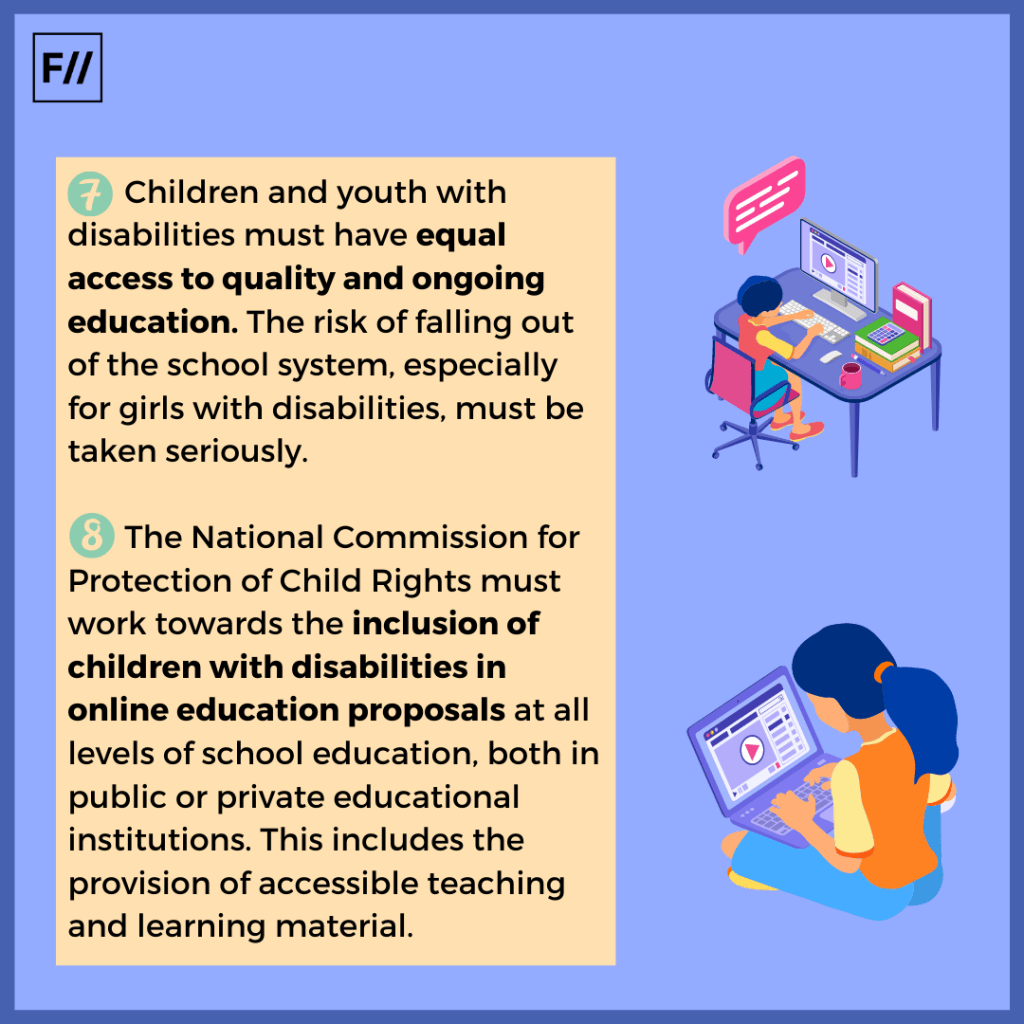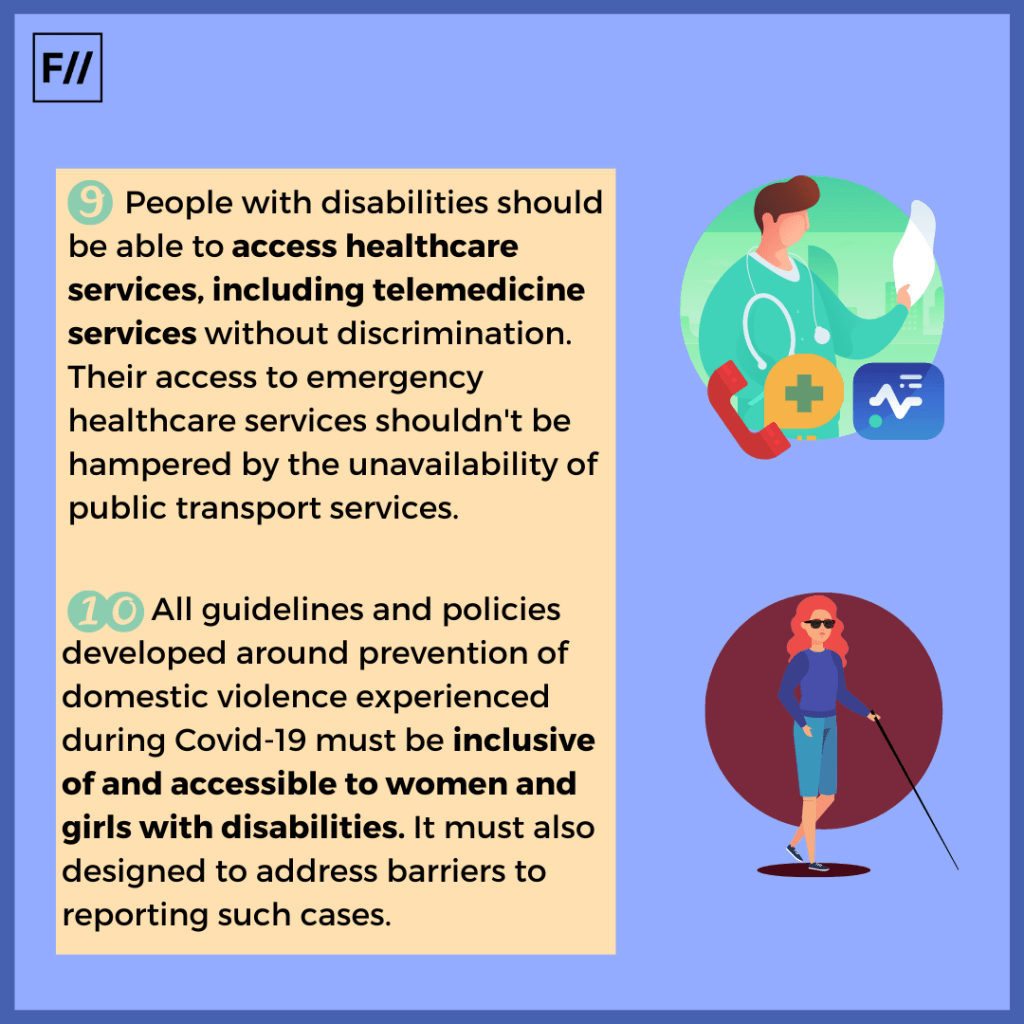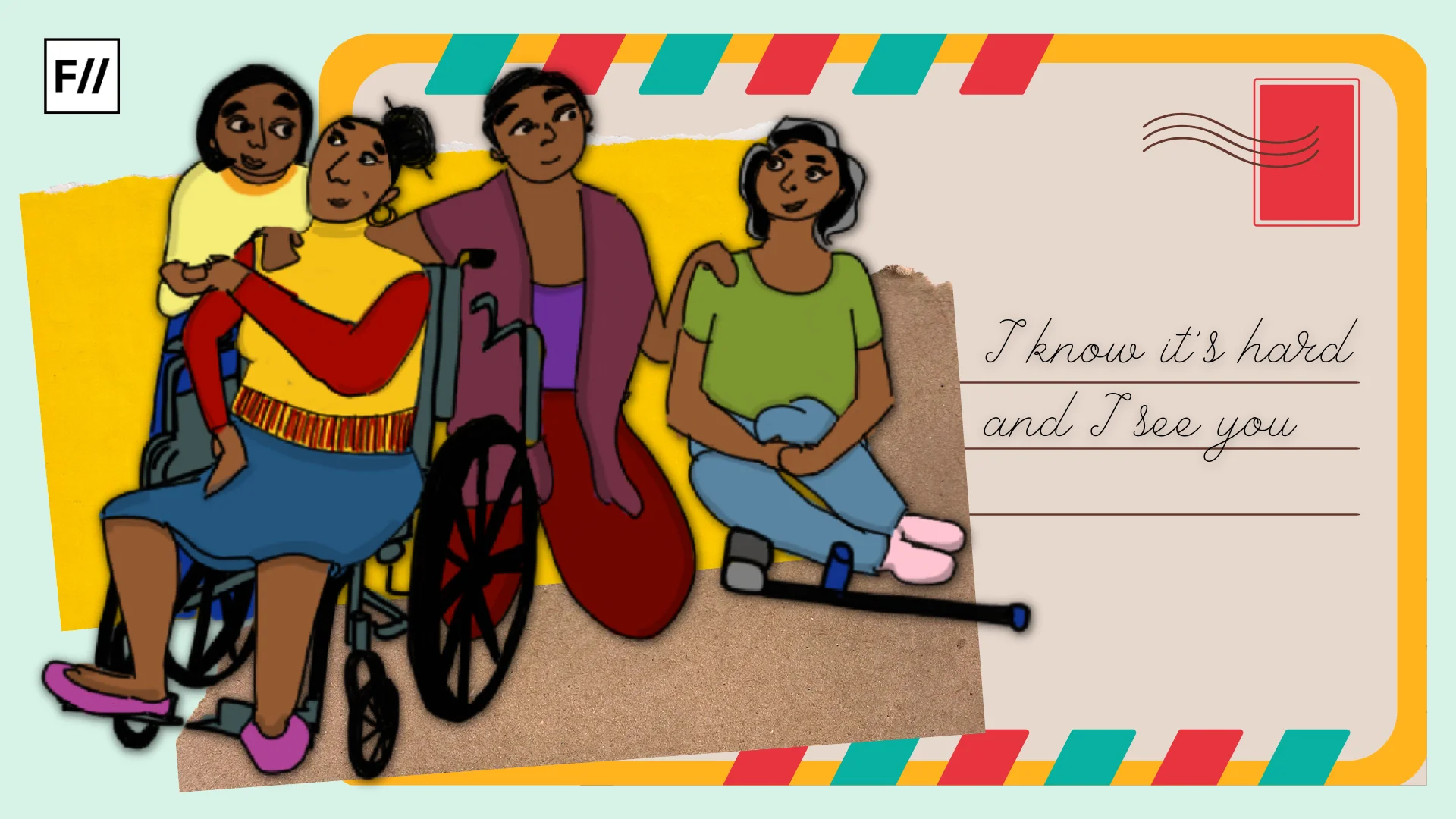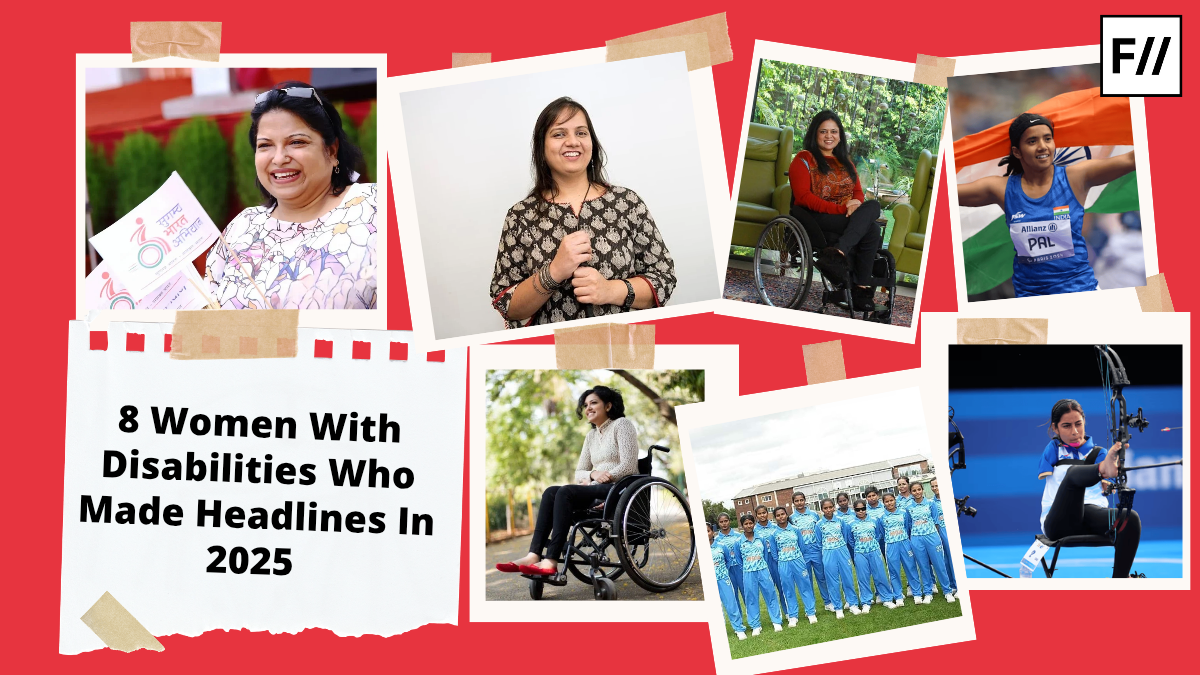In May 2020, between the Phases 3 and 4 of the lockdowns, Rising Flame, a non-profit organisation working for the protection and promotion of human rights of people with disabilities, and Sightsavers India, an international organisation working for the rights and needs of people with disabilities, undertook a study focusing on the experience and situation of women with disabilities in the COVID-19 pandemic in India. The study, titled ‘Neglected & Forgotten: Women with Disabilities during the Covid Crisis in India’, was based on a survey that focused on aspects such as Access, Health, Emotional Well-Being and Social Protection, among others.
The findings of the study have revealed the huge gap in terms of inclusion of people with disabilities, especially women with disabilities, in India’s Covid-19 response. But what exactly can be done to ensure their inclusivity? The study provides substantial recommendations for the government, policymakers and other stakeholders to ensure the ease of accessibility of people with disabilities during the pandemic. Here are some of them.

Also read: Accessibility For Women With Disabilities In Times Of COVID-19
Key Recommendations
1.The Disability Inclusive Guidelines issued by the Department of Empowerment of Persons with Disabilities must be revisited to ensure a gender-inclusive response to Covid-19.
2. Access to food, essentials including menstrual care products, healthcare and rehabilitation services, with clear budgetary allocations and accountability mechanisms for persons with disabilities must be ensured.

3. Authorities providing relief services during this period, including those under the Disability Inclusive Guidelines must collect disaggregated data on the number of people with disabilities who have been reached.
4. The role of the State Disability Commissioners must be strengthened to take suo moto action on discrimination against people with disabilities in accessing services and essentials during the pandemic.

5. Accessibility of all communications/ information/ announcements/helplines regarding COVID-19 should be ensured in a range of accessible formats including sign languages, braille, audio versions, easy to read versions and in local languages.
6. Caregivers, personal assistants, and interpreters should be categorically exempted from norms of physical distancing.

7. Children and youth with disabilities must have equal access to quality and ongoing education. The risk of falling out of the school system, especially for girls with disabilities, must be taken seriously.
8. The National Commission for Protection of Child Rights must work towards the inclusion of children with disabilities in online education proposals at all levels of school education, both in public or private educational institutions. This includes the provision of accessible teaching and learning material.

9. People with disabilities should be able to access healthcare services, including telemedicine services without discrimination. Their access to emergency healthcare services shouldn’t be hampered by the unavailability of public transport services.
10. All guidelines and policies developed around prevention of domestic violence experienced during Covid-19 must be inclusive of and accessible to women and girls with disabilities. It must also designed to address barriers to reporting such cases.

11. All people with disabilities, including those experiencing mental or emotional distress during the COVID-19 outbreak, must have equal access to call-in, in-person and online psychosocial support. Counselling and psychosocial support services should be deemed to be essential services.
12. Mental health responses need to be embedded in the COVID-19 recovery for people with disabilities with specific focus on women with disabilities.

To read the full report download it, click here.
Also read: How Lack Of Access Affected Emotional Well-Being Of People With Disability During COVID-19
About the author(s)
Feminism In India is an award-winning digital intersectional feminist media organisation to learn, educate and develop a feminist sensibility and unravel the F-word among the youth in India.




